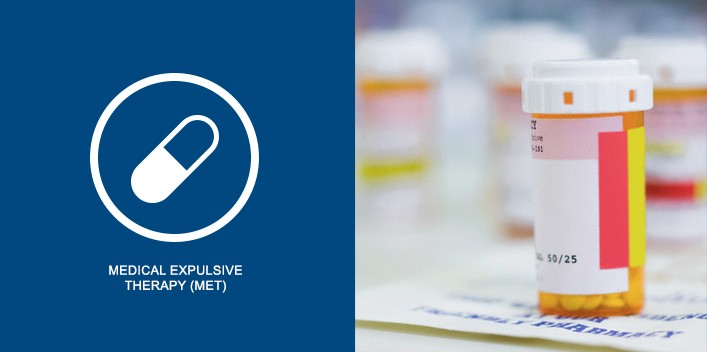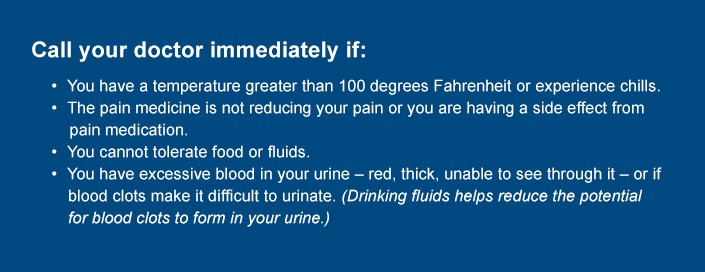Medical Expulsive Therapy (MET)

The Therapy
If you are a suitable candidate for MET, your doctor will prescribe an alpha blocker medication to be taken for up to 4 to 6 weeks. An alpha blocker relaxes the muscles in your ureter to make it easier for the stone to pass. Drinking plenty of fluids (six to eight glasses of water every day) will help flush your urinary system.
Even passing a small stone can cause severe pain and discomfort, so your doctor may recommend pain relievers such as ibuprofen, acetaminophen, naproxen sodium or narcotic analgesics. You may also need anti-nausea medicine as you wait for the stone to pass.
Before Therapy
Let your doctor know:
- All of your prescription medicines, vitamins and supplements, herbs and natural remedies, and over-the-counter drugs.
- Any known allergies you have to medicines and the contrast agent used in some X-rays.
- If you may be pregnant.
During & After Therapy
Be aware of these common symptoms:
- Nausea and occasional vomiting.
- Pain in your kidneys, abdomen, lower back and sides. Pain may increase when you urinate. Take medicine as prescribed.
- Blood in your urine. The color can range from light pink to reddish and sometimes can even have a brownish hue – but you should be able to see through it. (Medications to help with burning sensation during urination can sometimes turn urine orange or blue.) If bleeding increases significantly, call your doctor immediately or go to an emergency room for evaluation.
Be aware of these common side effects:
- Lightheadedness or dizziness
- Sinus congestion or runny nose sensation
- For men, a decrease in ejaculate volume secondary to retrograde ejaculation
